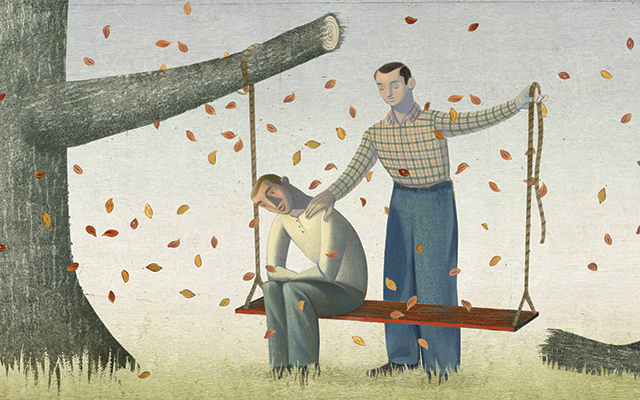When a friend is struggling, we might feel at a loss for words. Instead of offering frantic advice or trying to cheer them up, start by simply being present.
“The first thing to do is listen and be receptive,” says Kate Hanley, author of How to Be a Better Person. “Be open enough to let their words in and validate what they shared with you by saying things like ‘I hear you saying . . .’ or ‘It makes sense that . . .’ or ‘It sounds like . . .’ ”
Hanley also suggests repeating words your friend uses, so you don’t use language that implies judgment.
Though you might feel like you want to do more to help your friend, it’s important to remember your role. “We get mixed up on what is actually helpful,” Hanley says. “It’s not helpful to view their challenges as your problem to fix.”
What is helpful is to empower them to find their own solutions. Ask questions like “What do you need?” Or, “What do you think is the way forward?” Or say, “I’m here for you as you work through this.”
“Big emotions aren’t there to torture us,” Hanley notes. Rather, they show up to offer us some insight, to point out something that needs healing, or to help us address a deeper problem. “Jumping in to problem-solve or attempting to absolve their fear with toxic positivity may inhibit your friend from recognizing the insight that the emotion is trying to help them understand.” (For more on toxic positivity, see “The Downside of Optimism“.)
This was excerpted from “Courageous Communication” which was published in the December 2021 issue of Experience Life magazine.





This Post Has 0 Comments